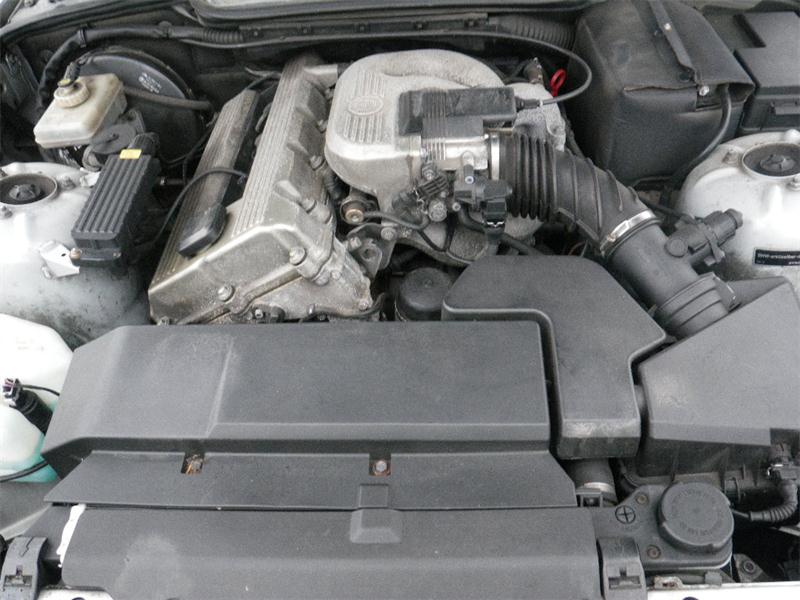The BMW 318ti: A Blend of Style, Convenience, and Efficiency
The BMW 318ti: A Blend of Style, Convenience, and Efficiency
Blog Article
Key Attributes to Try To Find When Purchasing an Engine for Automotive Applications
When taking into consideration the acquisition of an engine for auto applications, a number of crucial features call for cautious analysis to guarantee ideal performance and capability. From power and efficiency abilities to sustain efficiency, adherence, and toughness to discharges requirements, each facet plays a critical role in figuring out the engine's viability for details automotive demands.
Power and Efficiency
When selecting an auto engine, purchasers prioritize power and efficiency to make sure optimal driving experience and efficiency. A well-performing engine not only delivers power effectively but likewise operates smoothly throughout different speed ranges and driving conditions.
Purchasers often consider the engine's torque result along with its power ranking. Torque, determined in pound-feet (lb-ft) or Newton-meters (Nm), mirrors the engine's rotational force, influencing the automobile's capacity to tow, climb inclines, and accelerate from dead stop. An equilibrium between power and torque is critical for achieving a functional and receptive driving experience. In addition, factors such as engine variation, crossbreed, and turbocharging modern technologies play substantial duties in enhancing both power and performance degrees. Ultimately, choosing an engine that provides a potent combination of power and efficiency guarantees a efficient and rewarding driving experience. bmw 318ti.
Fuel Effectiveness
Enhancing fuel effectiveness is a critical factor to consider for customers when reviewing vehicle engine alternatives. Modern engines with functions like straight gas injection, turbocharging, and variable valve timing can dramatically enhance gas effectiveness by boosting combustion procedures and lowering power loss.

Longevity and Integrity
Attaining lasting efficiency and reputable operation is crucial for customers evaluating the sturdiness and dependability of automobile engines. When considering an engine for vehicle applications, sturdiness refers to the engine's capability to endure wear, tension, and severe operating problems over a prolonged period. Dependability, on the other hand, implies that the engine can constantly perform its designated feature without unforeseen break downs or failures.
Customers should seek engines created with premium products and accurate engineering to make sure longevity. Components such as bearings, crankshafts, and pistons should be long lasting to deal with the engine's power output without early wear. Additionally, engines equipped with advanced cooling systems, effective lubrication, and durable filtration devices often tend to show higher degrees of reliability.
Routine maintenance and adherence to manufacturer referrals are additionally crucial consider maintaining an engine's toughness and Read More Here reliability. By adhering to maintenance schedules, using recommended fluids, and addressing any type of concerns quickly, consumers can take full advantage of the lifespan and performance of their vehicle engines. Ultimately, prioritizing longevity and dependability in engine choice can bring about a much more rewarding ownership experience with fewer unanticipated interruptions.
Discharges Conformity
Making certain compliance with exhausts policies is a vital aspect of assessing automobile engines for eco conscious consumers. With raising worries regarding air quality and environmental effect, strict emissions requirements have been implemented worldwide to lower damaging toxins launched into the atmosphere. When buying an engine for automotive applications, it is vital to consider its discharges compliance to decrease the carbon impact and comply with legal demands.
Modern engines are geared redirected here up with advanced emission control technologies such as catalytic converters, exhaust gas recirculation (EGR) systems, and discerning catalytic decrease (SCR) to decrease unsafe exhaust gases like nitrogen oxides (NOx), carbon monoxide (CO), and hydrocarbons (HC) These systems play an essential duty in making sure that the engine satisfies the specified discharges requirements and operates within acceptable limitations.

Cost-effectiveness
When considering automotive engine acquisitions, evaluating cost-effectiveness is extremely important for customers seeking both efficiency and value. Cost-effectiveness in engine procurement involves greater than just the preliminary purchase cost. It includes the general costs connected to upkeep, fuel usage, and possible repair work over the engine's life expectancy. Going with an engine that offers a balance between upfront expenses and lasting savings can cause significant advantages for the consumer.
One key element of cost-effectiveness is fuel performance. Engines that are developed to make best use of gas economic climate can bring about significant cost savings over time, specifically for individuals that drive frequently or over long ranges. In addition, thinking about the accessibility and cost of extra components and maintenance can add to the total cost-effectiveness of an engine. Making certain that repair and maintenance are easily accessible and sensible can prevent unanticipated financial worries down the line.

Final Thought
Finally, when acquiring an engine for automobile applications, it is important to take into consideration crucial attributes such as power and performance, fuel sturdiness, reliability and performance, exhausts compliance, and cost-effectiveness. These variables are crucial in making sure that the engine satisfies the requirements of the lorry and runs successfully in various driving conditions - bmw 318ti. Making an educated decision based on these requirements will inevitably result in a successful and effective vehicle engine purchase
From power and efficiency capacities to fuel adherence, resilience, and performance to emissions standards, each element plays an essential role in identifying the engine's suitability for particular automotive needs. Engines developed to run on alternate gas such as electric power, hybrid systems, or biofuels can provide enhanced gas economic situation and reduced exhausts contrasted to typical gasoline or diesel engines. Customers need to thoroughly take into consideration the gas performance ratings and modern technologies included right into automobile engines to make informed buying choices that line up with their concerns for price savings and sustainability.
When thinking about an engine for automotive applications, durability refers to the engine's capacity to endure wear, stress, and severe operating problems over a prolonged duration.In final thought, when buying an engine for automotive applications, it is crucial to think about vital functions such as power and efficiency, fuel effectiveness, dependability and longevity, exhausts compliance, and cost-effectiveness.
Report this page